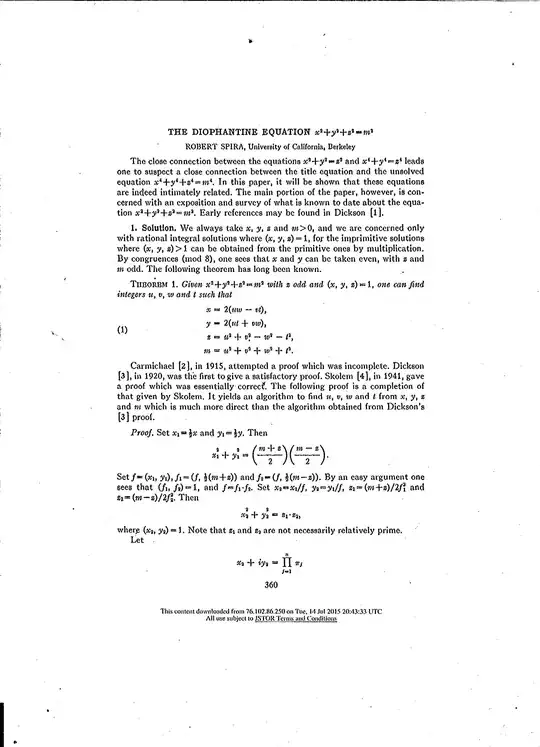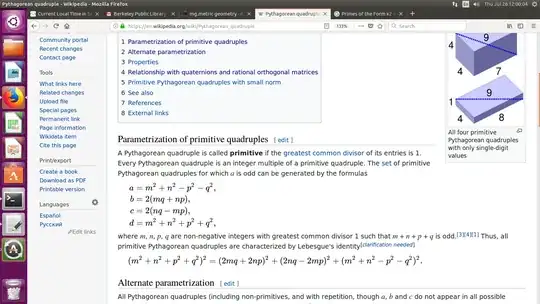This is part of a bigger question, but it boils down to:
Is there a square number that is equal to the sum of three different square numbers?
I could only find a special case where two of the three are equal? https://pir2.forumeiros.com/t86615-soma-de-tres-quadrados (in portuguese).
Any clue?


[[(a,b,c,d) for (a,b,c,d) in itertools.product(range(1,21),repeat = 4) if a**2 + b**2 + c**2 - d**2 == 0]will instantly give you the 99 solutions with all terms <= 20. – John Coleman Jul 26 '18 at 21:07